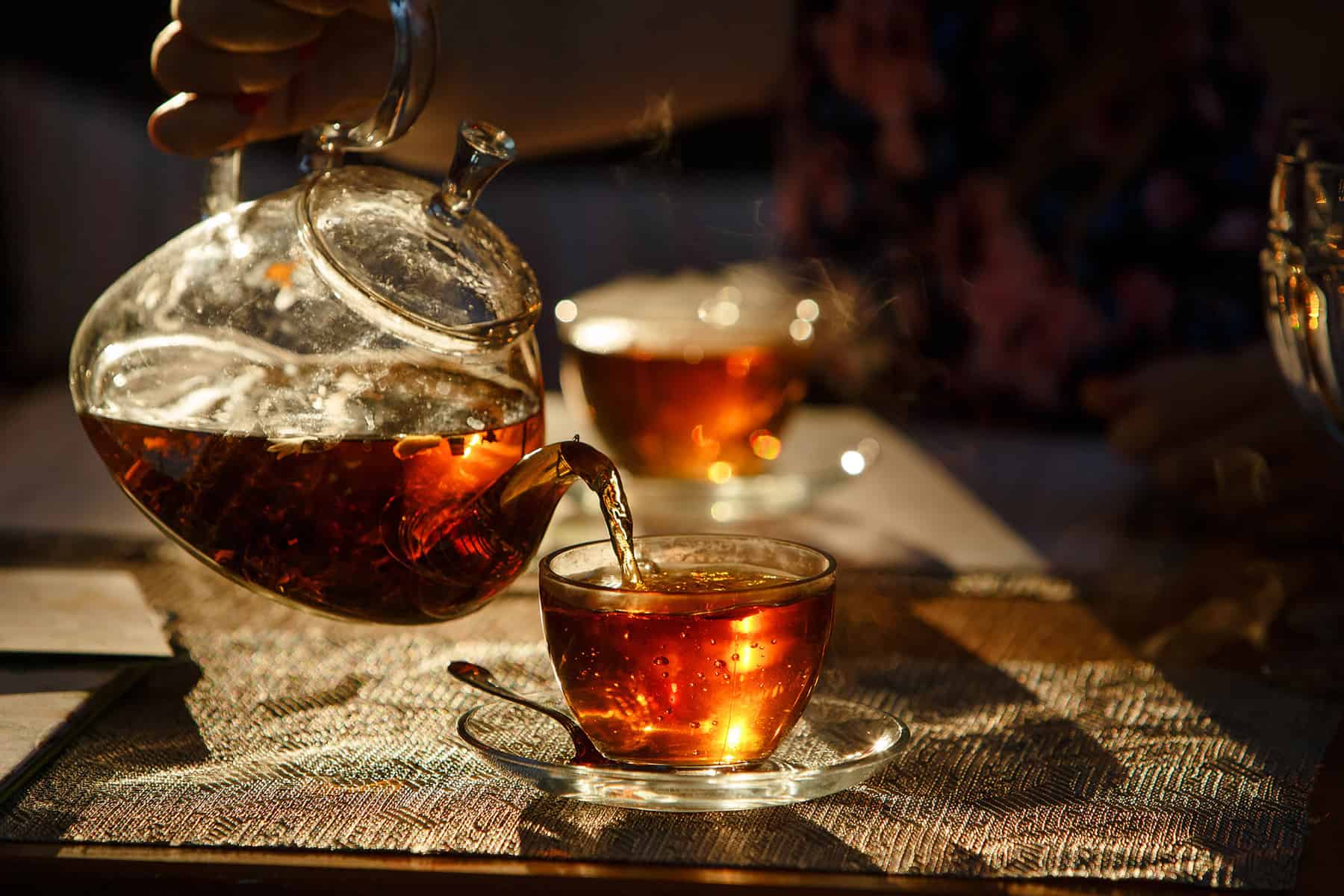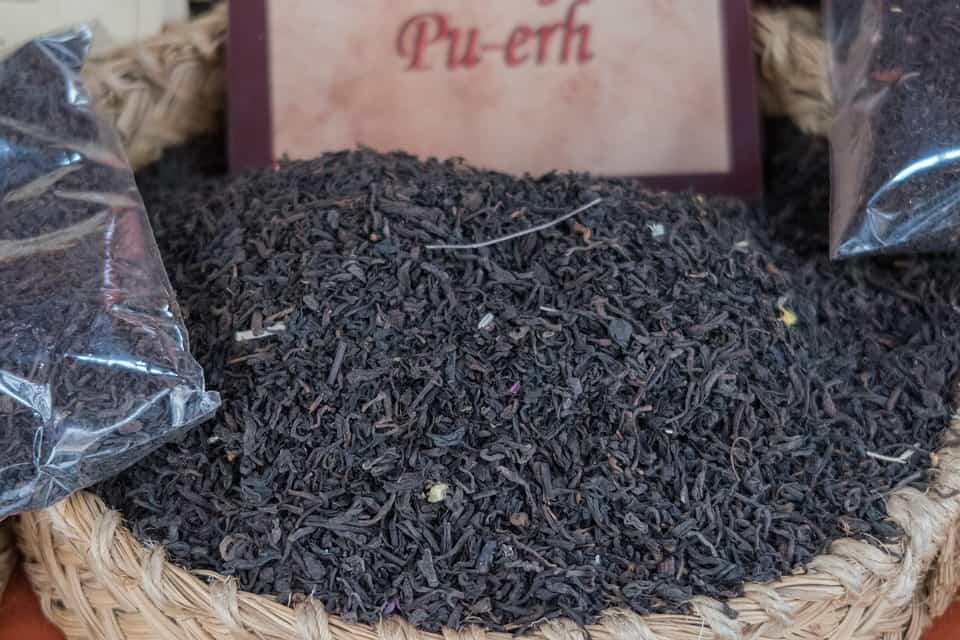Tea and coffee both contain caffeine, although people often think that tea contains less. However, tea with most caffeine levels can invigorate you just like coffee.
Therefore, people who have trouble sleeping don’t drink “true” tea, but tisane (herbal) with a sedative effect.
How is caffeinated tea different from coffee? What kind of tea has the most caffeine? Follow this guide before you add any tea to your diet.
1. Caffeine Comparison between Teas (and Coffee)
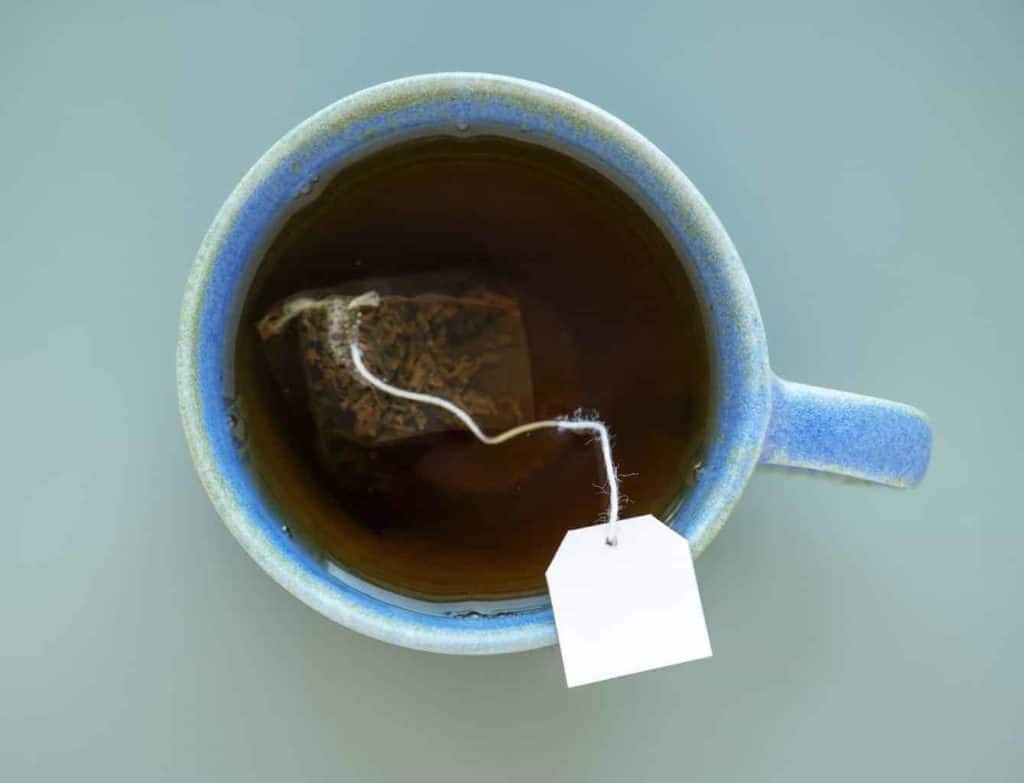
A standard cup of black coffee contains about 108 mg caffeine, while espresso is just 77 mg. Yerba mate tea has the highest record of caffeine, which is 85 mg per cup.
Matcha tea, a potent green tea made by grinding the entire leaves into powder, has 70 mg of caffeine per cup.
Darker teas usually have higher caffeine intake than the lighter ones. Black tea has around 60 mg of caffeine per cup, while oolong tea has 50 mg, green tea 35 mg, and white tea 30 mg.
The high caffeine in darker tea comes from the oxidization process. The lighter the tea, the less processed it is and therefore has lower caffeine levels.
Different brands of the same tea may have variations in the caffeine levels. One brand of black tea may have 60 mg of caffeine per cup, while the other one has 70 mg.
It depends on things like soil condition, cultivation technique, and processing method.
2. Caffeinated Tea or Coffee?
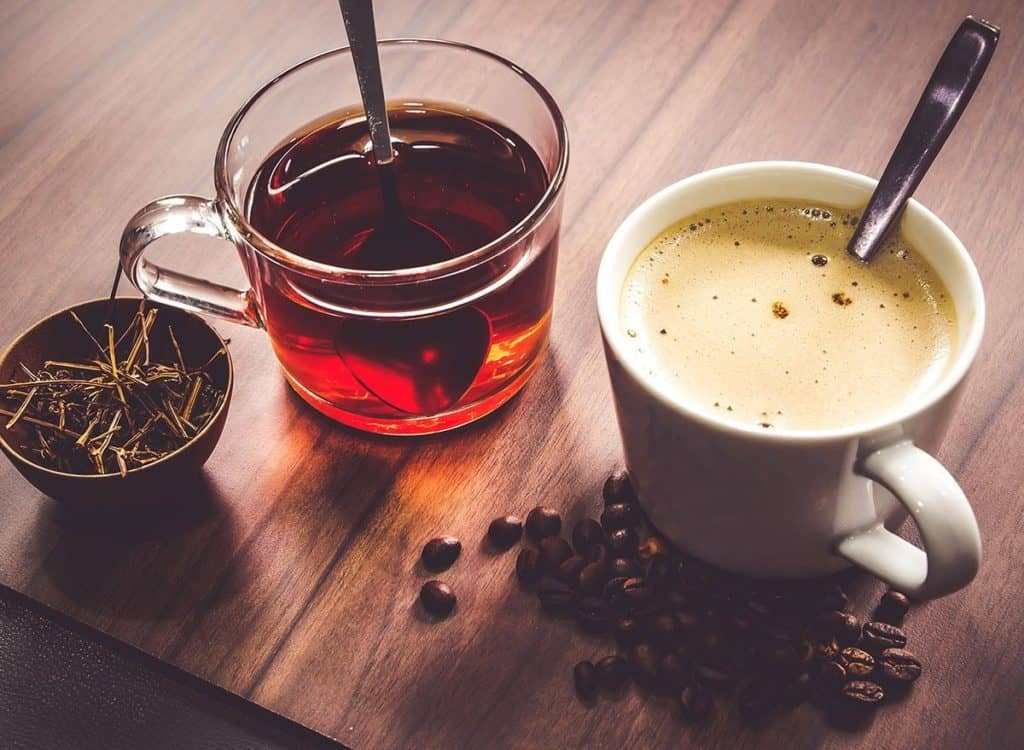
High-caffeine tea is a better alternative than coffee for many people. The caffeine in coffee is released immediately, while tea is more slowly.
The latter results in a slow but steady invigorating effect, ideal for people who get jittery when drinking coffee. Tea also has less acidity than coffee, perfect for people with acid reflux or ulcers.
Tea offers extra benefits from L-theanine, a type of amino acid that releases mild relaxation effects. Depending on the type, tea also contains antioxidants such as flavonoids and flavones.
High-caffeine tea also has a strong flavor, perfect for coffee drinkers looking for alternative beverages.
3. Recommended Brands of High-caffeine Tea
If you need a quick pick-me-up, but don’t want to consume coffee, choose tea with high caffeine. Many tea products are now specifically marketed as having high caffeine. Some of the recommended brands are:
· Shaklee 180
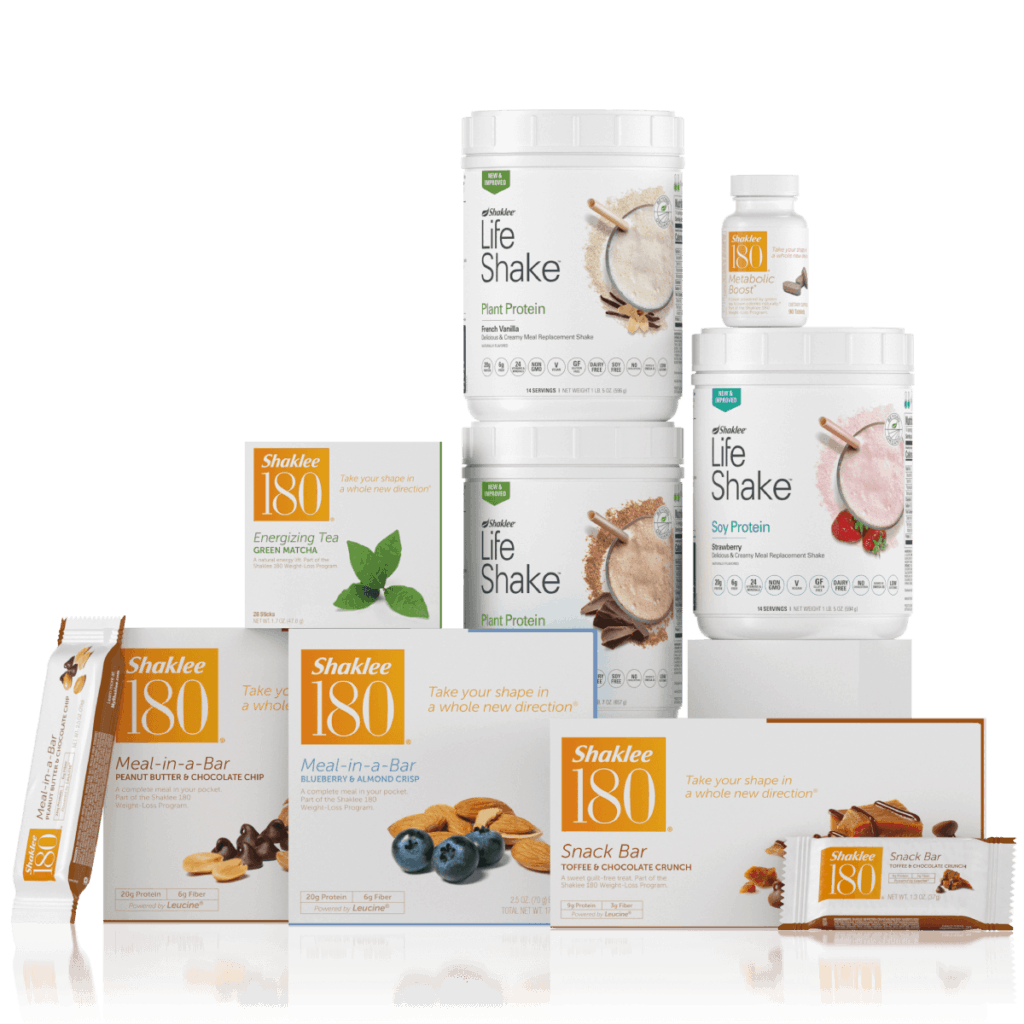
Shaklee 180 blends matcha, green, white, and red tea in practical powder. The individual packages make the tea convenient to make.
Shaklee 180 is known as a pre-workout drink because there is extra taurine for energy. You can consume it as a cold or hot drink.
· Stash Super Irish Breakfast
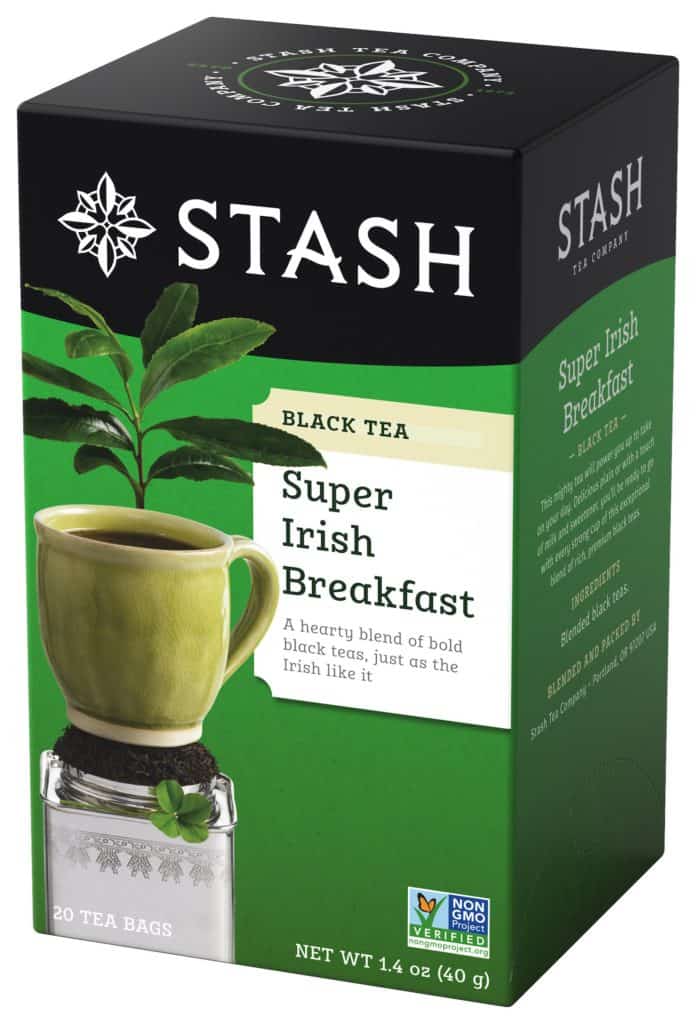
Stash Super Irish Breakfast contains more caffeine than regular Irish Breakfast tea.
Harvested in Assam, the Indian capital of black tea, Super Irish Breakfast provides rich and malty flavor, with full-body sensation in the mouth. You can still taste the rich flavor even with milk and sugar.
· Zest Tea High Octane Tea
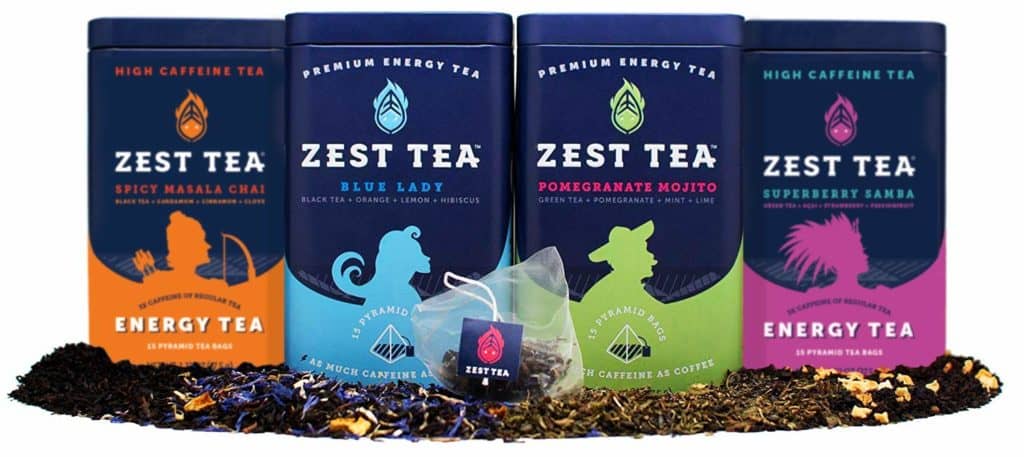
Zest Tea High Octane Tea is one of the teas with the highest caffeine. One standard cup of this tea contains more caffeine than well-brewed black coffee.
The blend consists of black tea from South India, passion fruit, lemon, hibiscus, and orange peel. The L-theanine slows down the release of caffeine, giving you extended alertness instead of caffeine crash and jitter.
· Celestial Seasonings Morning Thunder
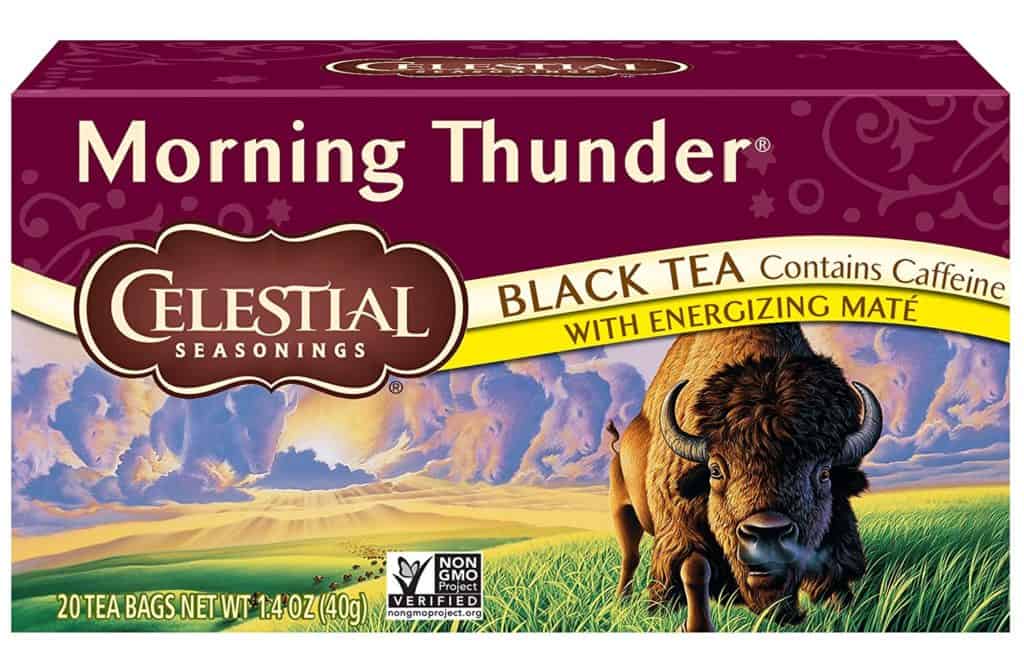
Celestial Seasonings Morning Thunder contains black tea and yerba mate, a herb with high caffeine amount. The tea has a strong, herbaceous flavor, which may taste a little too earthy for some people.
However, the beverage will wake you up quickly.
· Yogi Raspberry Passion Perfect Energy
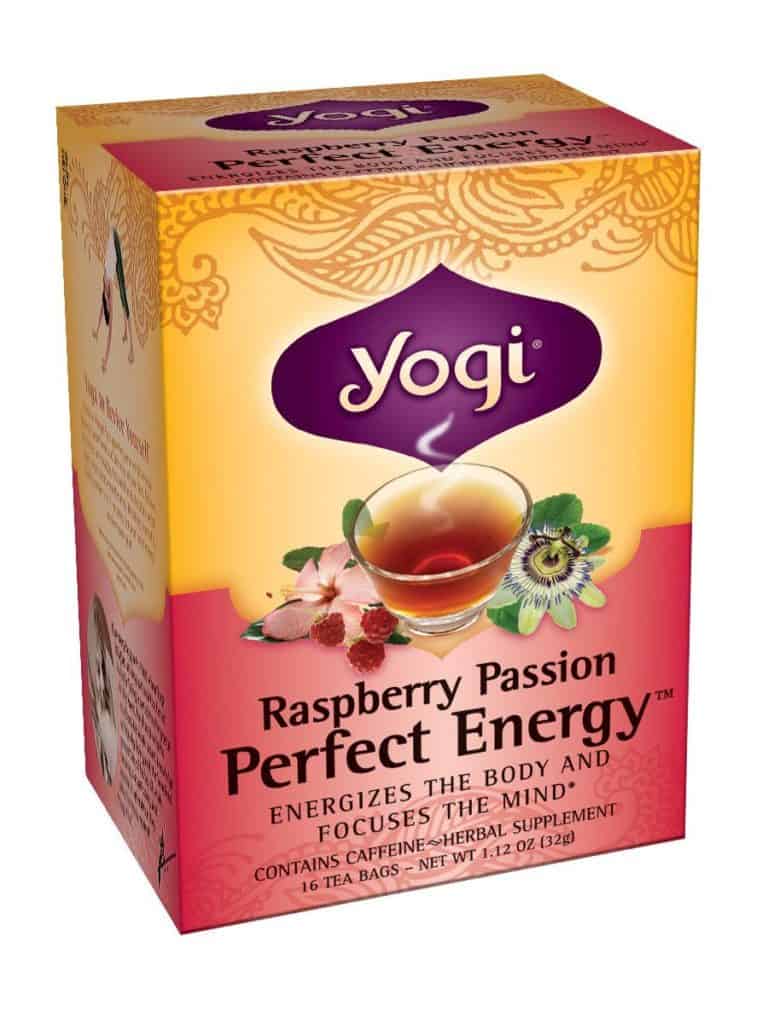
Yogi Raspberry Passion blends green and black tea with passionfruit and raspberry. The result is a strong, rich beverage with a little refreshing tartness.
It contains L-theanine and taurine to energize you and slow down the release of caffeine. The tea is kosher, non-GMO, and vegan, but the tartness may upset a sensitive stomach.
· The Republic of Tea HiCaf
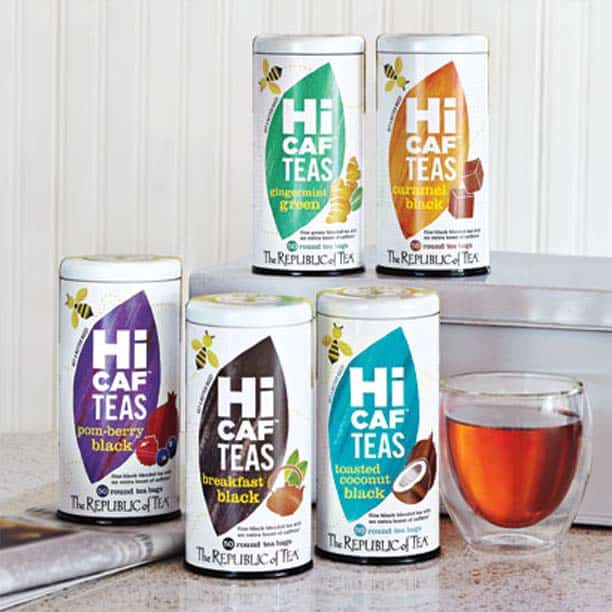
The HiCaf tea from The Republic of Tea mixes black tea with green tea extract, creating a strong wake-up blend. It contains licorice extract that provides subtle natural sweetness.
You can choose between toasted coconut and mint flavor variants. The amazing flavor and high caffeine help you focus on work or study without jitter.
4. How to Get the Most of Caffeinated Tea
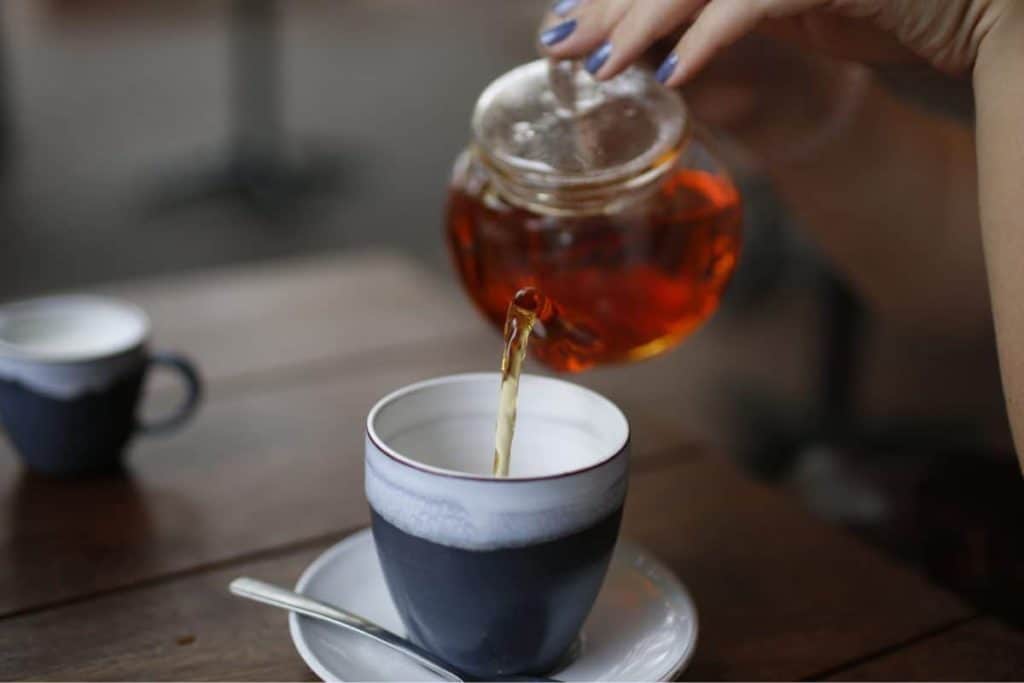
Most highly caffeinated tea products will not be as strong as coffee. If you want to get the most waking-up power from the tea, try these methods:
· Steep in High Water Temperature
Make sure your water has a boiling temperature. If the tea instruction does not recommend boiling water, wait for 30 seconds before you steep the tea. The hotter the temperature, the more caffeine you get.
· Choose Loose Leaves
If possible, choose loose leaf tea over bags or powder. Loose leaves offer more antioxidants with the caffeine, giving you most of the tea benefits.
When traveling, bring a travel mug with a built-in infuser (which is available widely online). Just place the tea in the infuser, add hot water, and enjoy.
· Choose Matcha or Black Tea Blend
A wake-up tea product often consists of several blends. Check the main tea types used for the blends. If you want something strong, choose matcha or black tea (or the combination of both).
Matcha and black tea have the highest caffeine amounts offer green or white tea.
5. Cautions and Side Effects
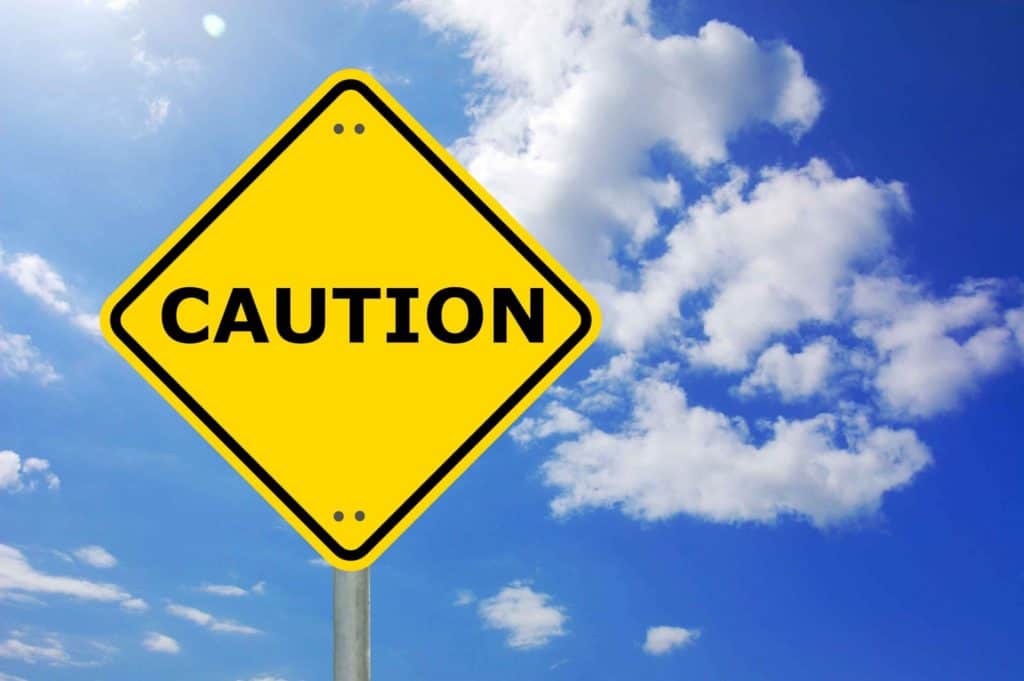
Despite having slower reactions than coffee, caffeine in the tea still brings certain health impacts. You should not consume such tea if you have insomnia, acid reflux, anxiety, or in the middle of pregnancy.
High-caffeine tea may also interfere with certain medications, such as aspirins, blood-thinning drugs, and antidepressants.
If you drink high-caffeine tea for the first time, check if there are symptoms such as palpitations, jitters, nausea, headache, or rapid breathing. Stop drinking the tea when they happen and opt for regular tea instead.
Read More : DOES GREEN TEA HAVE CAFFEINE? IF IT DOES, HOW MUCH IS REASONABLE?
6. Conclusion
Some tea types have high caffeine levels, although not as much as coffee. Tea releases its caffeine slowly, resulting in an extended energizing effect.
Matcha, black tea, and yerba mate have the highest amounts of caffeine naturally. However, the tea with most caffeine consists of several blends with various processing and cultivation methods.
Read Now : DOES COFFEE HAVE HIGHER CAFFEINE THAN TEA? SEE THE DETAILS ON HOW MUCH CAFFEINE IN COFFEE VS. TEA


